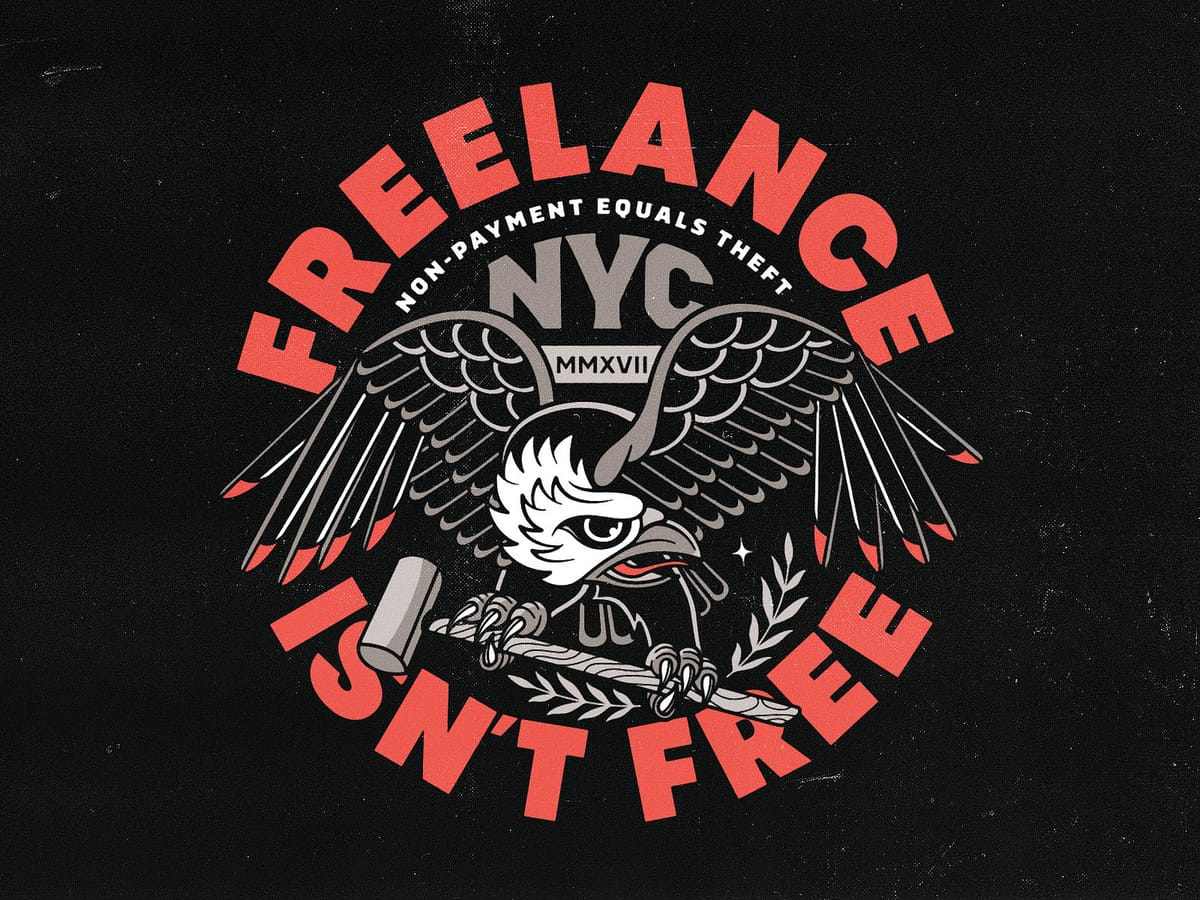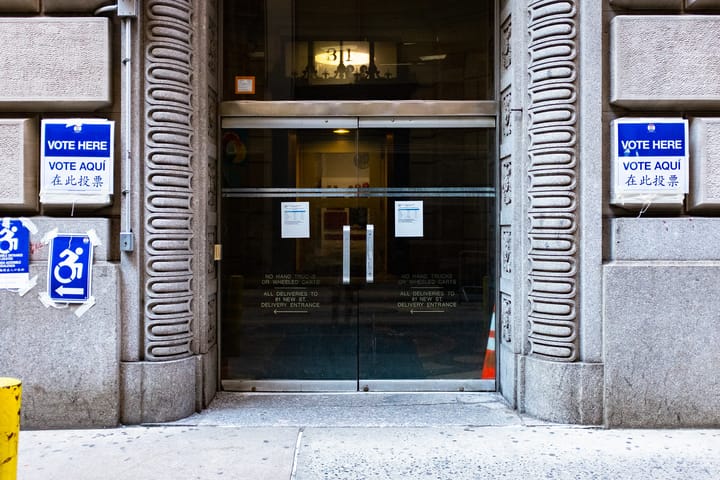How to scare your freelance boss into finally paying up
"It was like a day after mentioning the Freelance Isn't Free Act that I got paid, after 105 days of not getting paid."

By Virginia K. Smith
Pretty much anyone who’s worked as a freelancer has at some point had to take on an unexpected second (or third, or fourth) job: hounding their client for money that was due weeks or months ago.
It’s a crazy-making and financially onerous process. It’s also supposed to be illegal, thanks to the city’s Freelance Isn’t Free Act, which went into effect in 2017 and stipulates, among other things, that contractors must be paid within 30 days of the completion of work.
You may want to make sure you’re sitting down for this next part, but it seems like even with a specific law in place, a lot of bosses still aren’t bothering to pay their contract workers on time?
Since Local Law 140 went into effect, the Department of Consumer and Worker Protection has received more than 2,500 complaints from freelancers struggling to chase down late payments, according to Rafael Espinal, executive director of the Freelancer’s Union and a former City Council member who worked on the creation of the bill.
(New York State recently passed its own version of Freelance Isn’t Free, which will govern freelancers and employers through the entire state versus in New York City specifically, and is expected to go into effect in May. Similar laws have also been passed in Seattle, Los Angeles, and the state of Illinois, part of a push for a nationwide expansion of these worker protections.)
In the most high-profile enforcement of the law to date, French magazine L’Officiel was forced to pay out $275,000 to 41 New York City-based freelancers after a high-profile 2021 lawsuit brought by the city under the new law. Normally, cases don’t escalate to this level before being settled.
Of the wayward clients who received city inquiries after their freelancers filed late payment complaints, “74% paid those freelancers without having to go to small claims court,” Epsinal told The Groove.
And beyond the realm of official complaints, the law may be at its most potent as a means of threatening bosses into doing the right thing, without ever needing to get the city involved.
“Anecdotally, a pretty substantial chunk of the time, it’s enough to sort of raise the specter of the law,” said Eric Thurm, an organizer with the Freelance Solidarity project. “The invocation of the law is often enough to get employers to ‘magically’ discover or fix the problem in their accounting system.”
What to do if someone isn’t paying you
We’ve got a case study in exactly how this kind of thing plays out in practice, courtesy of Greenpoint-based freelance writer, bartender and occasional Groove contributor Rick Paulas.
After months of trying to chase down close to $8,000 worth of late payments for freelance work covering housing and homelessness at The Guardian, an organizer at the Freelance Solidarity Project urged Paulas to start mentioning the Freelance Isn’t Free Act in his follow-up emails.
“After multiple, multiple [prior] emails, I mentioned the Freelance Isn’t Free Act in an email that was kind of strongly worded, saying things like, ‘I haven’t been paid in 105 days since the first article was published, which is well beyond the limit for this law that governs New York City, where I live,’” Paulas told The Groove. “‘And if I’m not paid soon I’ll be forced to file a complaint with the [Department of Consumer and Worker Protection] to collect payment and additional penalties.’”
The accounting “issue” was figured out and his first payment came through the next day.
“It was like a day after mentioning the Freelance Isn’t Free Act that I got paid, after 105 days of not getting paid,” Paulas said.
This is exactly why the (admittedly kind of embarrassing) concept of a “strongly worded email” is generally the first course of action the Freelancers Union recommends to people who find themselves in this situation.
“We suggest to our members to email to their client informing them that this law exists, the time frame it enforces for the client to pay their freelancers,” Espinal said. “And if they don’t receive a response, we encourage them to dial 311 or go on the DCWP website to file their complaint, which is a very easy process.”
After a complaint is filed, the freelancer will get a notice that the process might take 10 to 12 weeks, but “usually they hear back within 21 days,” Espinal noted. If the freelancer’s delinquent client fails to respond to the city’s inquiry and pay their outstanding invoices, the city then writes a letter to the freelancer confirming that they’ve taken appropriate steps to file a complaint and that the client was unresponsive.
The point of this letter, Espinal said, is to act as a powerful piece of evidence on the freelancer’s side in small claims court.
“The judge sees this as extra proof that the freelancer has exhausted all options trying to get paid by this client,” he said. “And if they’re able to prove their case and win, then their client owes them double what they originally owed plus any attorney fees accrued in the process.”
So in a nutshell, the process for shaking down your freelance clients goes something like this:
- Send a “strongly worded” email invoking your rights under the Freelance Isn’t Free Act. (Note that these rights apply to you as a freelancer whether you yourself are based in New York City, your employer is based in New York City, or both.)
- If that doesn’t get you an adequate, timely response (ie, payment), file an official complaint through the DCWP website.
- If that doesn’t get a response, use the DCWP’s letter about your unresponsive client as evidence in small claims court.
“In a lot of cases employers that are not paying people are doing it because they think they can get away with it,” Thurm said. “Freelancers are kind of isolated and low on resources. Even making people aware that there are people who are interested and a regulatory agency that can enforce this goes a long way.”




Comments ()